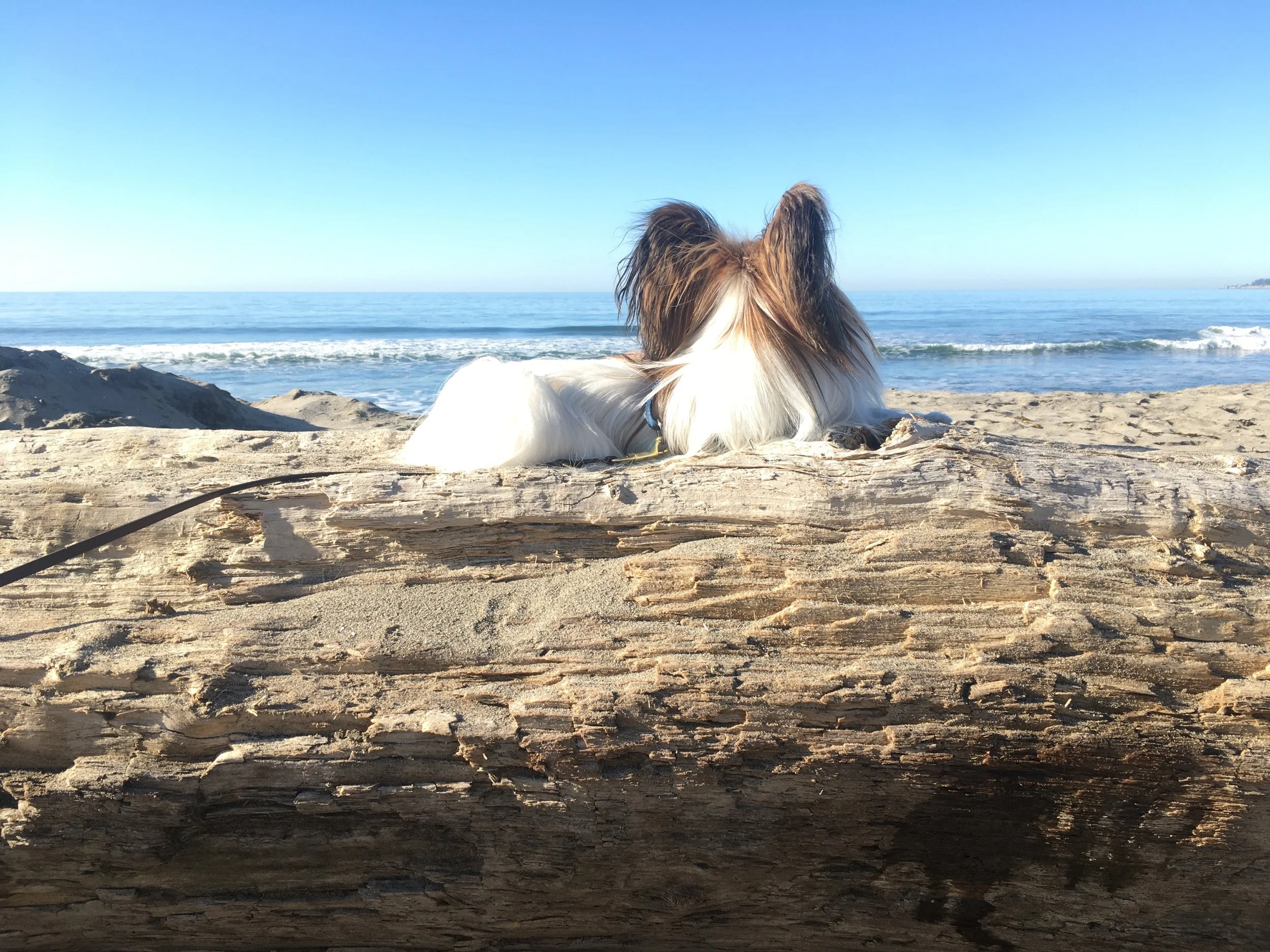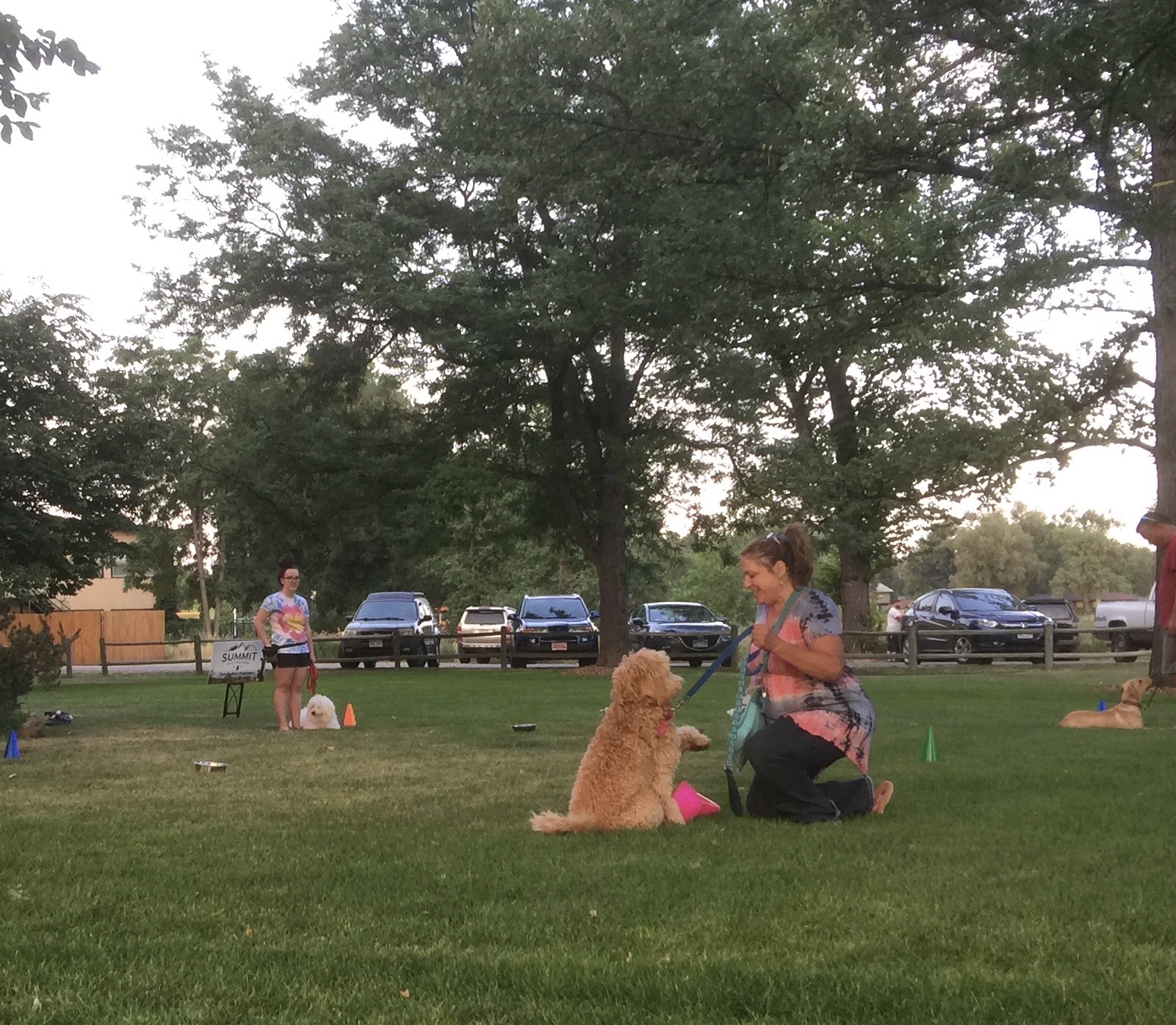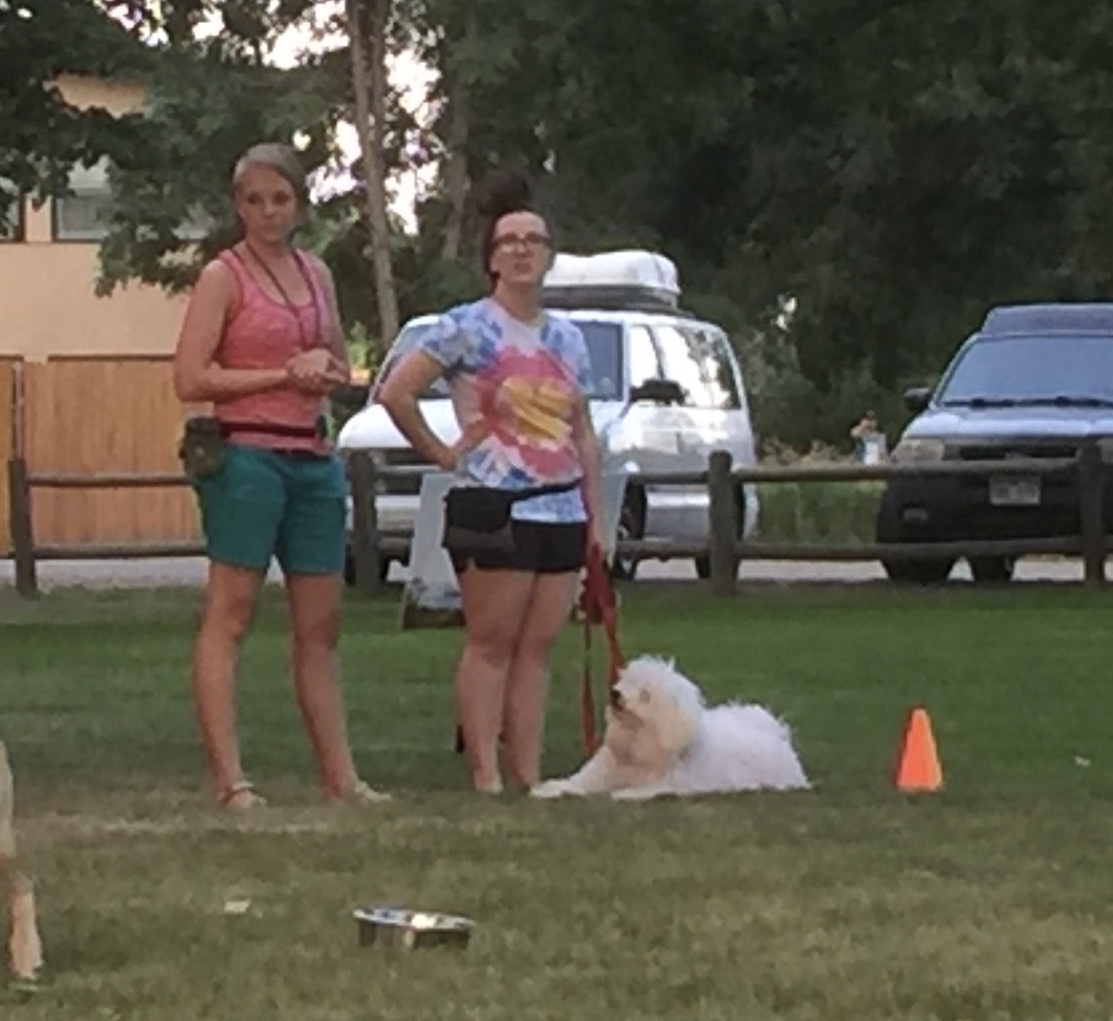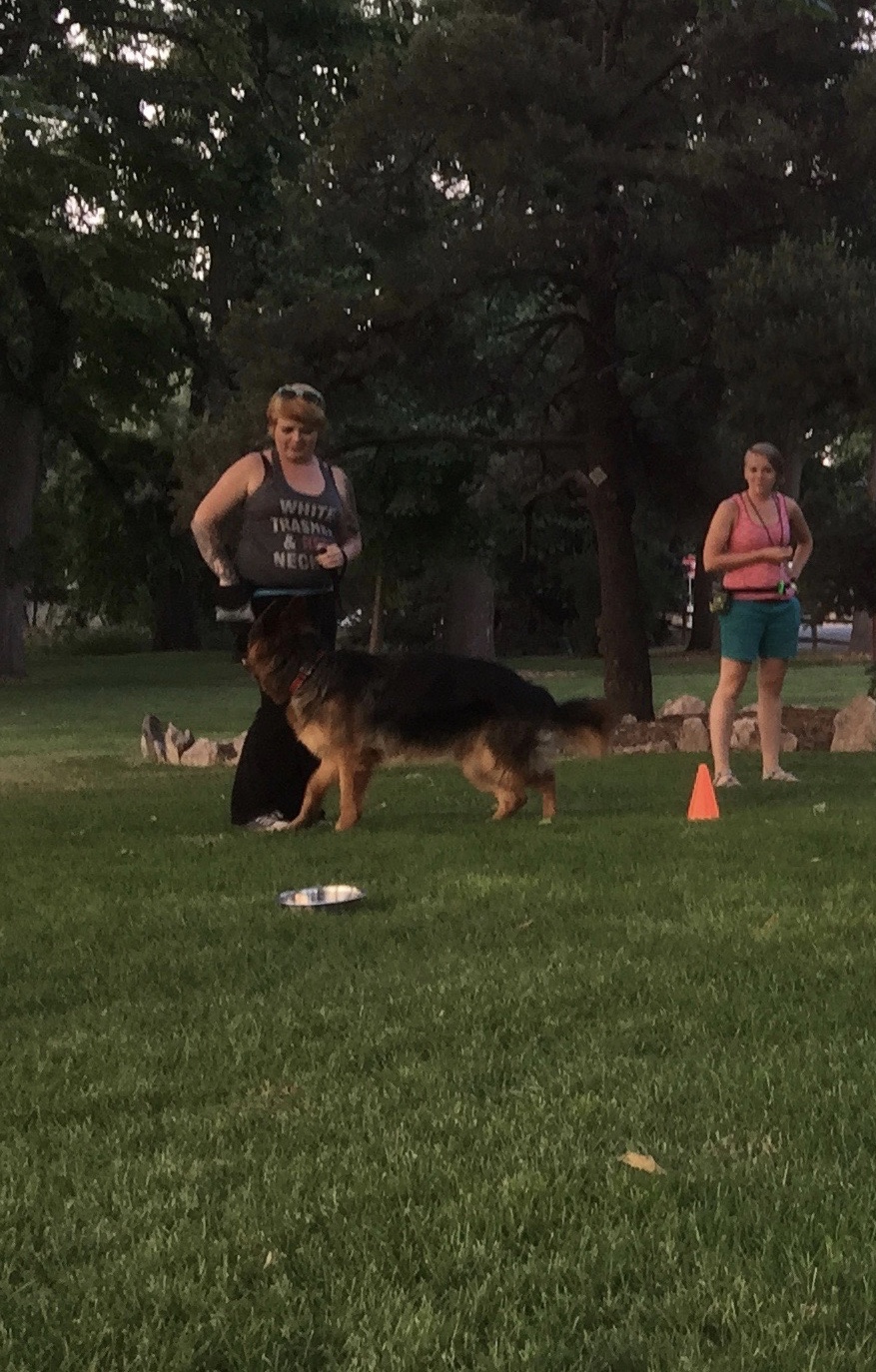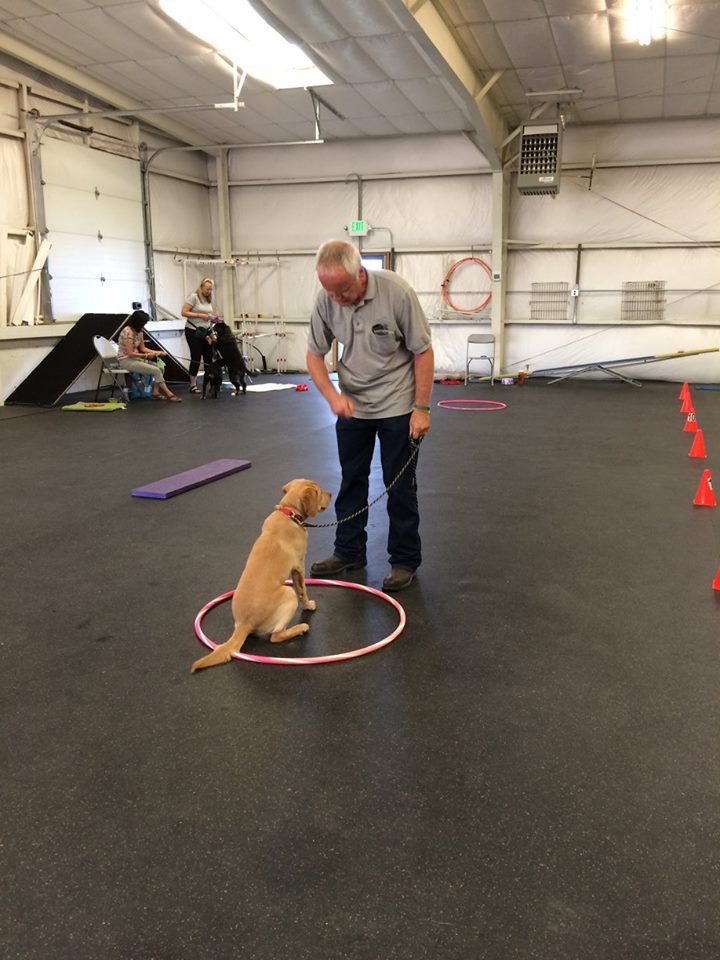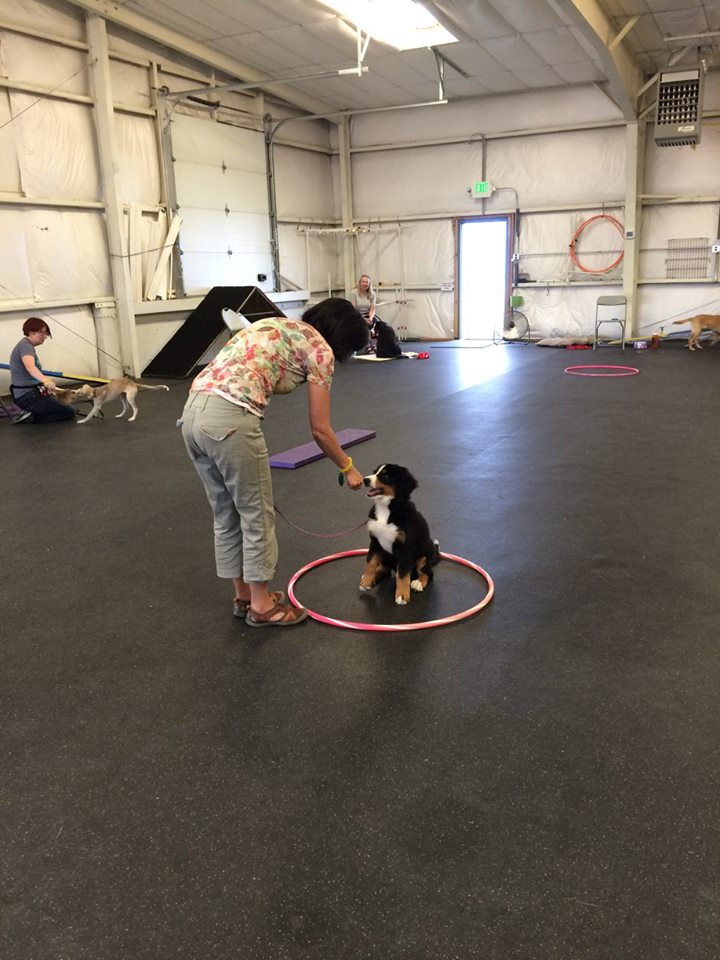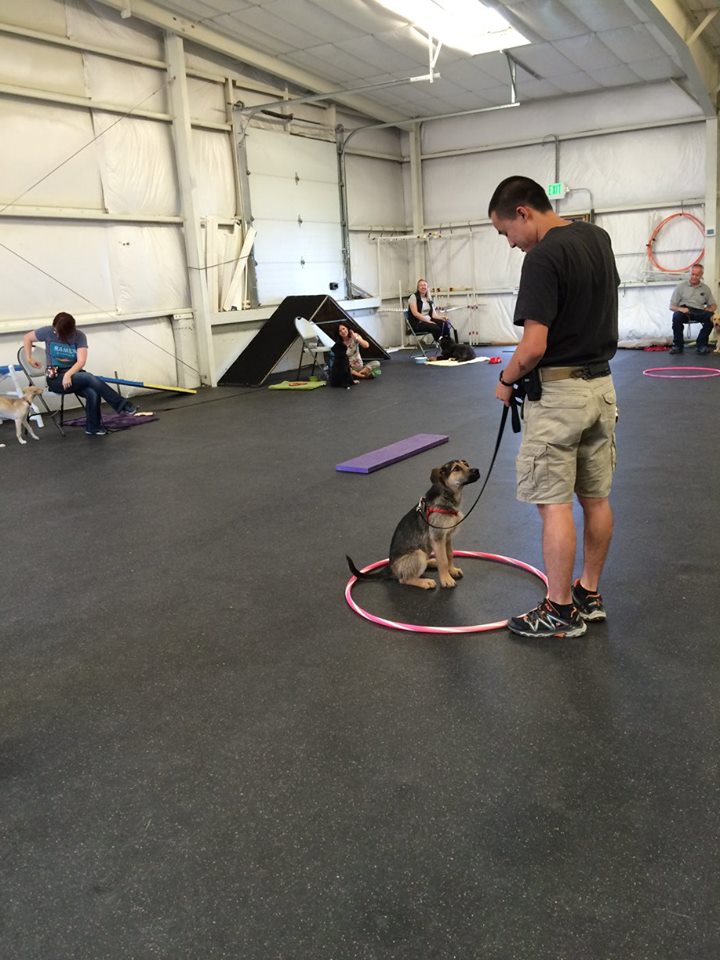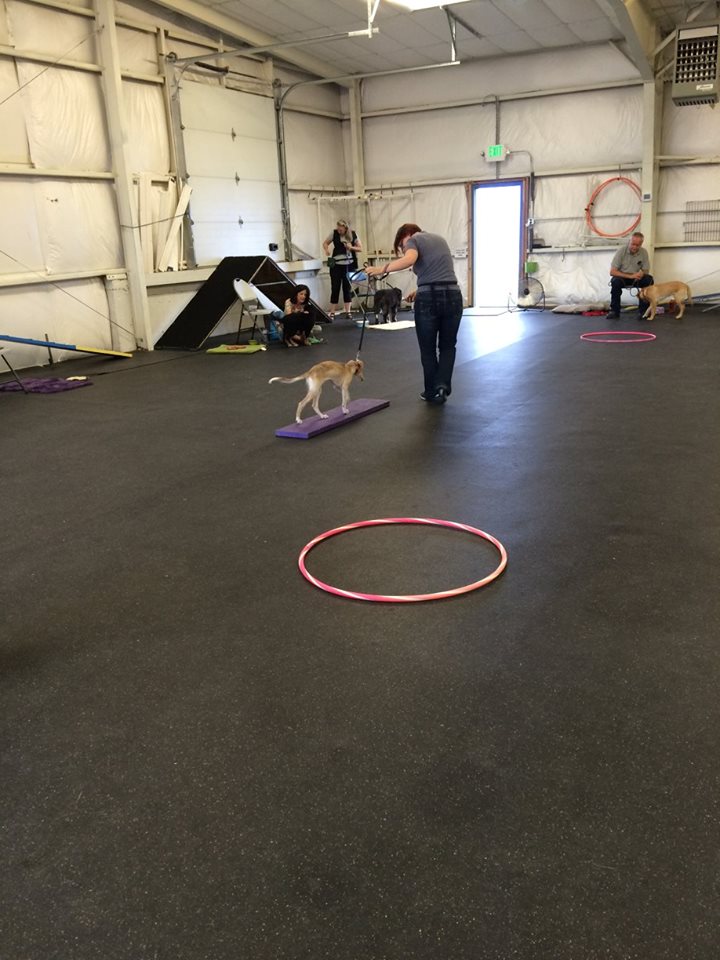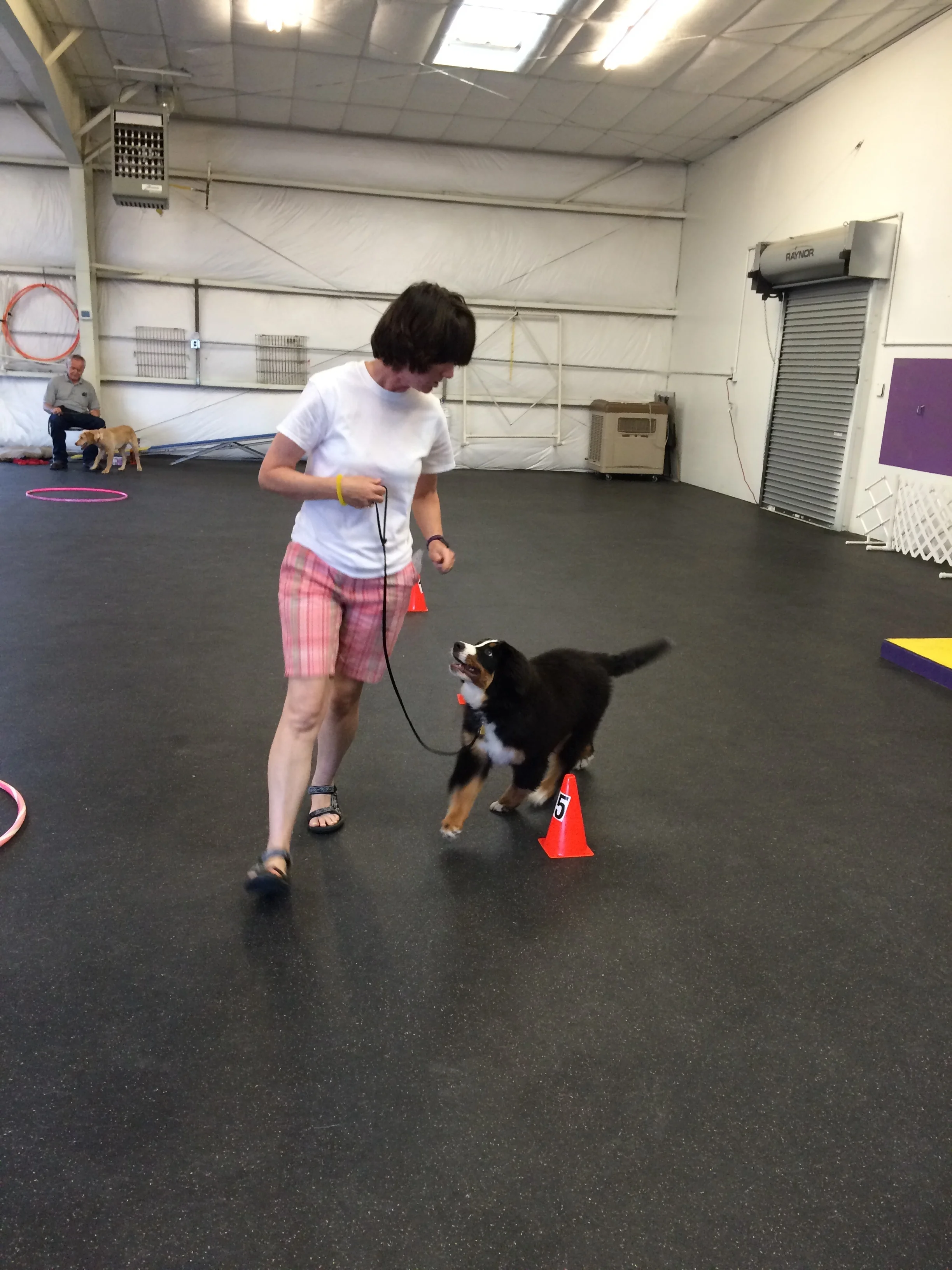Help, My Puppy is Afraid!
By: Shay Cline KPA-CTP, FDM
It’s completely normal for puppies to feel unsure or even afraid of new things. In fact, it’s a healthy part of development. Just like human kids, puppies go through sensitive stages—called fear periods—when they’re more likely to startle or shy away from unfamiliar sights and sounds. These moments don’t mean your puppy is broken—they just need your support and guidance.
Step One: Take a Deep Breath
Seriously—take a moment to calm yourself first. Puppies are incredibly attuned to our emotional state, so your calm confidence goes a long way toward helping them feel safe.
Step Two: Assess the Situation
Can you tell what your puppy is reacting to? Is it something moving, still, loud, or unusual-looking? Understanding what your puppy is afraid of will help you respond thoughtfully.
Want to learn more about supporting your puppy to be confident? Reach out to Summit Dog Training for expert advice and tailored solutions! We’re here to help!
The Object is Alive or Moving (or Might Start Moving)
If the object is alive, or capable of sudden movements that may be startling for your puppy, calmly and confidently continue movement AWAY from the thing.
Create space. Calmly and confidently move away.
Need to pass it? That’s okay. If your puppy is small, you can carry them. If they’re too big to carry, shorten the leash and "step up." Position your body between your puppy and the scary thing as you pass.
Once you're clear, pause. Let your puppy sniff, shake it off, or just reconnect with you. That moment of calm reassurance is powerful.
If the object is not coming towards you…
If you have space to get far enough away that your puppy can observe from a distance, this can be a good learning opportunity!
Find a distance that your puppy is comfortable watching.
When your puppy is calmly looking at the thing from a distance, you can reward them with a treat (away from the thing, not towards it!) and label what they’re seeing; “Good job. That’s the neighbor.”
Don’t be tempted to push closer before they are ready. If you get a few brave moments, go ahead and continue on your walk. Try to end on a good note!
📹 Watch: Help Your Puppy Recover from a Startle
In this clip, we walk through a real-life example of helping a puppy bounce back from a surprise moment with confidence and calm.
The Object is Still
Great! We know it is safe and won’t suddenly turn into a scary monster! If you’re feeling calm and have time, this could potentially be a good confidence building opportunity for your puppy.
If the object is in your home or in a safe environment…
Let your puppy approach or retreat at their own pace.
You can interact with the object to show it's safe—like laying a scary coat flat on the floor.
Pair it with treats and gentle praise as your puppy explores.
📹 Watch: Say Hi to Scary Objects – Building Puppy Confidence About New Things
This video shows a gentle, practical way to introduce puppies to unfamiliar things and help build curiosity instead of fear.
Leash Reality Check
Leashes can make scary things feel even scarier, since they limit a puppy’s ability to create distance. Be aware of this tension, and don’t force them toward something they’re not ready for. Instead:
Let your puppy lead. If they show curiosity, follow their pace.
Avoid dragging, luring, or coaxing to show them it’s “no big deal” —trust takes time!
Sometimes avoidance is the answer
If your puppy is afraid of something, don’t feel like you have to work through it right in the moment! Sometimes it is better for everyone to get out of there and reintroduce the concept later when you and your puppy are more up to the challenge or can have more control of the situation.
For example: Your puppy sees a neighbor shoveling snow—giant coat, scraping noises, heavy movements… it’s a lot! Instead of pushing through, save the learning opportunity for in a more controlled setting. Later, show them the snow shovel indoors, let them sniff it on the ground, then gradually introduce movement while giving frequent treats.
What Your Puppy Needs Most is You
Your calm presence, thoughtful response, and willingness to meet them where they are make all the difference. Every “scary” moment is an opportunity to build trust—and confidence.
Need Help Building That Confidence?
At Summit Dog Training, we love helping families turn “uh-oh” moments into confident adventures. If your puppy is feeling unsure, or you're not sure how to respond, we’re here for you. Reach out or check out our puppy programs to get support from our expert trainers.


